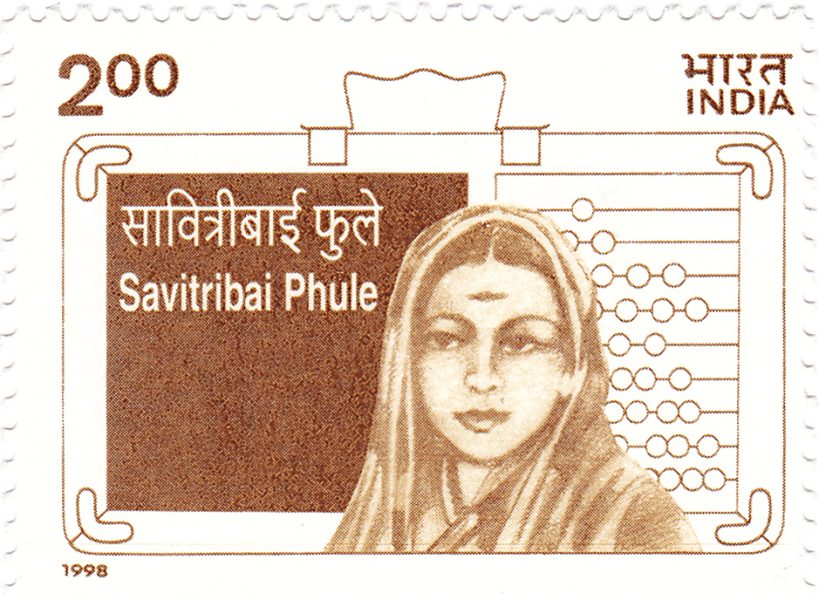
On Savitribai Phule Jayanti, know why every literate Indian woman is indebted to her

Savitribai Phule Jayanti, observed on January 3, commemorates the 192nd birth anniversary of Savitribai Phule this year. The 19th-century social reformer was one of India’s first modern feminists and a pioneer in women’s education.
She was born on January 3, 1831, at Naigaon in Maharashtra’s Satara district. She was married to Jyotirao Phule at the tender age of nine. It was Jyotirao who taught her to read and write, and she went on to become a qualified teacher in 1847. The couple set up the Society of Truth-Seekers to promote progressive ideas like condemning the dowry system, and they persisted in spite of constant harassment from the traditionalists.
Ferocious defender of women’s rights
Savitribai was a ferocious defender of women’s rights and fearlessly stood up to patriarchy. She was India’s first female teacher, and she worked tirelessly to uplift women and the Dalits by educating them.
Savitribai and Jyotirao founded the first school for girls in India in 1848, at Bhide Wada, Pune. She was passionate about the education of her students and held meetings with their parents to stress the importance of educating girls.
Also read: Make this the century of women’s equality: UN chief Antonio Guterres
Promoting the cause of education for girls was not easy during her time, and people would abuse her by hurling mud, stones, and even faeces at her when she went to teach. But she was not one to be cowed down and withstood all the persecution. It is said that she used to carry an extra saree with her to change into after the abuse.
Savitribai was also at the forefront of the movement to abolish caste- and gender-based discrimination and child marriage.
‘Every Indian woman owes a debt of gratitude to Savitribai Phule’
In an interview to Business Insider India, Reeta Ramamurthy Gupta, the author of probably the first biography of Savitribai in English, titled Savitri and Fatima, said, “Every Indian woman, anywhere in the world, who can read and write, owes a debt of gratitude to Savitribai Phule. I wanted to bring her to the front and the centre of public consciousness because the preservation of our democracy lies in being cognisant of our hard-won freedom and how precious and tenuous this freedom is!”
Also read: Govt needs to strongly rethink law on raising women’s marriage age, say experts
The author continued, “Savitribai was an embodiment of the word ‘feminism’. Her convictions and her actions were set in the 19th century, at a time when even basic rights were not available to women. She fought for their basic dignity and education. Her activism and her duty required real gumption. She not only re-scripted her own life, but she also made it possible for untouchables and women to re-script theirs too.”
The friendship between Savitribai and Fatima Shaikh
When asked about the title of the biography, Gupta said, “This is a story of a friendship between the two women. When Savitribai and her husband founded the first school for girls (by a non-missionary or non-British), they were thrown out of their house. It was Fatima Shaikh who gave them shelter.”
“Fatima had taken her teacher training lessons along with Savitribai Phule, and they developed a deep friendship. Fatima functioned as a dependable deputy to Savitri Phule’s efforts. She offered to run all the schools, and this gave Savitribai Phule the opportunity to confront other social issues, such as widow remarriage and the oppressive caste system.
Also read: Women’s rights activist, SEWA founder Ela Bhatt dies at 89
Yet, this friendship between Savitri and Fatima and their work together remains unsung and unknown. They had a dream, ‘education for all’, irrespective of caste, creed, or religion. The spark lit by Savitri and Fatima had far-reaching consequences. As more and more girls got educated, their minds opened up to the ideas of freedom, justice, and liberty,” Gupta added.
Revolutionary poet
Savitribai Phule was a revolutionary poet who wrote 41 poems. She published her first collection of Marathi poems called Kavya Phule in 1854. Her second anthology, Bhavan Kashi, was published in 1982.
She passed away on March 10, 1897.
Savitribai Phule will always be remembered as one of India’s foremost social reformers and pioneers of education for women and the Dalits.


